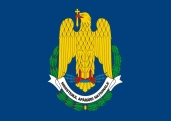Protecting forests should be in everyone's interest. But the EU's deforestation rules pit member states, environmentalists and interest groups against each other. For now, those in favour of simplification and weaker rules have won out.
European Union lawmakers voted to further postpone and dilute the bloc's planned rules on fighting deforestation. Several member states as well as industry groups had called for the delay, citing excessive red tape. For European environmentalists, this is another setback after the 30th United Nations Climate Change Conference (COP30) ended on Saturday, also without producing a concrete action plan to curb forest destruction.
The European Parliament voted on Wednesday to simplify the EU Regulation on deforestation-free products (EUDR), with support of the European People's Party (EPP) and far-right groups - a development which is likely to have lasting political aftereffects as well. The vote was passed by 402 votes to 250, with eight abstentions.
MEPs agreed to postpone the entry into force of the rules by one year, until 30 December 2026, with an additional six-month grace period for small and micro enterprises, ending on 30 June 2027. At the request of Germany and Austria, who had previously expressed strong criticism of the EUDR, a review clause was also passed, which will be carried out by April 30, 2026 to allow for further simplifications.
In addition to postponing the law, reporting requirements for companies are to be relaxed. This includes softening obligations for companies to submit a due diligence statement when placing a product on the EU market for the first time.
Following Wednesday's vote, the European Parliament will start negotiations with member states on the details of the amendments, which must then be approved by the European Parliament and the Council and published in the Official Journal of the EU by the end of 2025 for the one-year postponement to enter into force.
Delayed once, delayed twice
Adopted in 2023, the EUDR was hailed by green groups as a major breakthrough in the fight to protect nature and combat climate change. The law bans goods produced using deforested land after December 2020, with at-risk items including anything from coffee to cocoa, soy, timber, palm oil, printing paper and rubber, as well as cattle.
Additionally, firms importing such merchandise to the 27-nation European Union would need to provide a statement alongside geolocation and satellite data to show the goods did not originate from deforested zones.
Under the original plan, companies who then purchase, process and sell the items would also need to submit such papers. Amongst others, this would have applied to industry giants such as Italian chocolate-maker Ferrero and Swiss food giant Nestlé, who buy cocoa to make chocolates.
The European Commission later found that these additional checks risked overloading the IT system designed to support the rules, and called for the requirement to be removed for everyone except first importers.
The EUDR was originally due to come into effect at the end of last year, but that deadline was pushed back by one year in late 2024 to December 2025. Renegotiations on the law were necessitated by a glitch in the IT systems at the European Commission.
This resulted in a series of additional changes being brought to the negotiating table: In September 2025, the Commission proposed another one-year delay, but in late October walked this back to sticking to the December 2025 plan, with additional grace periods of up to 12 months.
In the end, Germany suggested the simplifications and further one-year postponement of the regulation, which was approved by the ambassadors of the 27 EU countries by a large majority, with only the Netherlands and Belgium abstaining and Spain voting against. Subsequently, both the European Council in mid-November and the European Parliament a few weeks later passed the amendment.
But are all stakeholders convinced? Do EU companies and enterprises embrace this new relaxation of red tape, or is the regulatory uncertainty making it unclear which path to follow?
Yes to forests, no to red tape
Even if EU member states want to protect forests, some fear the EUDR could hinder their industrial and economic development, which would immediately affect citizens.
For instance, in Europe's retail and wholesale sector, represented by EuroCommerce, the vote was described as a step towards a more workable regulation. "Our sector fully supports the fight against deforestation," a statement by Els Bedert, Director for Product Policy and Sustainability read, "however, businesses need time to prepare for the implementation of the rules without disrupting trade flows or supply chains."
Back in the European Parliament, the parties in favour of the amendment were the conservative EPP, parts of the liberal Renew group, the far-right Patriots for Europe and the equally far-right Europe of Sovereign Nations group, which includes lawmakers from the far-right Alternative for Germany (AfD) party.
Both the Swedish government and the main opposition party support the postponement. "This legislation was initially surrounded by a lot of questions and question marks, so it's good that they will be straightened out. This is good for Swedish forest owners," said Swedish EPP-MEP Jessica Polfjärd. Also, some Swedish Social Democrats were among the few in the Socialist and Democrats group (S&D) to vote in favour of the amendment.
Slovenia is another EU member state that has advocated for simplifying the EUDR and postponing its implementation. Agriculture Minister Mateja Caluic expressed her support for the EU's goals of preventing global deforestation and preserving biodiversity, but has warned of disproportionate burdens on farmers, forest owners, and businesses.
In Bulgaria, the woodworking industry also complained about added difficulties stemming from regulatory burdens, including implementation of the EUDR, and had called thus for the 12-month delay of core obligations and for reduced administrative pressure on small and micro enterprises. However, the Environment and Water Ministry said that Bulgaria's positions on adaptation, financing, and just transition had been aligned with the Commission's plan to stick to the 2025 enforcement schedule.
Czech businesses have also been demanding an immediate postponement of the EUDR for at least 12 months and the use of the one-year pause to cut excessive bureaucracy, according to the country's Chamber of Commerce (HK). Tomá Prouza, HK president and head of the Czech Confederation of Commerce and Tourism (SOCR), described the current law as 'a poorly prepared proposal'.
Tommaso Foti, Italy's Minister for European Affairs, shared in a statement that "[the approved version] is an important victory for Italy and our production chains, (...) and it gives companies realistic timeframes to adapt, protecting competitiveness, employment and production continuity". Foti also stressed that this was the direction the government of Prime Minister Giorgia Meloni wanted to pursue, protecting "those who create value, jobs and development".
Member states such as Austria, which are not greatly affected by deforestation, are particularly opposed to the law as a whole. The conservative Austrian People's Party (ÖVP) and the extreme right Freedom Party of Austria (FPÖ) expressly welcomed and supported the postponement, with FPÖ MEP Roman Haider calling the EUDR a "new bureaucratic monster".
Rewarding inaction?
The flip-flopping over the rules has also rankled not only environmental advocates, but also firms that have already invested large sums to comply.
Ferrero and Nestlé are among two dozen businesses that warned this week a further one-year delay would "prolong legal and market uncertainty, penalise first movers, and reward inaction".
Pierre-Jean Sol Brasier, of the Fern environmental group, said the move sent a "disastrous signal at every level", calling the back and forth on the law "a caricature of incompetent EU policymaking". He then warned that "we are creating instability for companies that have invested millions" towards compliance and added that the door was now open "for EU lawmakers to eviscerate" the text.
One of the biggest opposition voices comes from the European Commission's Executive Vice-President for a Clean, Just and Competitive Transition, the Spaniard Teresa Ribera, who criticised the delay and review to the EUDR "even before starting".
Beyond the pressure exerted by Ribera to implement the regulation as soon as possible, Spain has called for the legislation to be applied without delay. In addition, the country has recently joined the initiative led by Germany and the European Commission to support Deforestation-Free Value Chains.
As part of this effort, Spain will contribute to the development of a Deforestation-Free Trade Portal designed to help operators meet the traceability and due-diligence requirements set out in the EU's anti-deforestation law.
Even in countries such as Austria that are firmly in favour of the postponement, there have been dissenting voices.
Austrian Green MEP Thomas Waitz slammed the opposition of his country's ruling centre-right party to the forest-saving plans saying that "the ÖVP's motto is: postpone, water down and make it impossible". Waitz also expressed his concerns about when the ruling conservatives would realise that EU legislation has an impact far beyond their national borders.
Editorial note: The statement by European Commission's Executive Vice-President for a Clean, Just and Competitive Transition, Teresa Ribera, has been updated for clarification.
The content of this article is based on reporting by AFP, ANSA, APA, BTA, CTK, dpa, EFE, STA, TT, as part of the European Newsroom (enr) project.
































Comentează